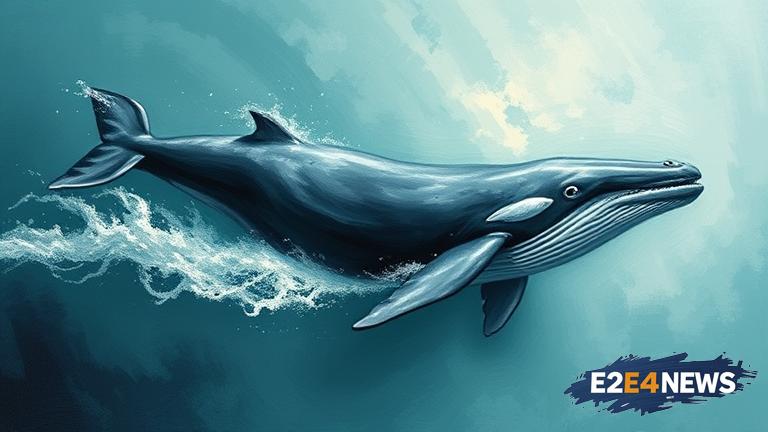The Senate Standing Committee on Maritime Affairs was recently informed by the Ministry of Maritime Affairs that Pakistan has no direct contact with the International Whaling Commission (IWC). This revelation has raised eyebrows among environmentalists and conservationists, who are concerned about the country’s lack of engagement with the global body responsible for regulating whaling and promoting marine conservation. The IWC is an international organization that aims to conserve whale populations and promote sustainable whaling practices. Pakistan’s absence from the IWC’s meetings and decision-making processes has sparked concerns that the country may not be doing enough to protect its marine ecosystem. The Ministry of Maritime Affairs has cited a lack of resources and capacity as the reason for not having direct contact with the IWC. However, experts argue that this is not a valid excuse, given the importance of marine conservation and the potential impacts of whaling on the country’s marine ecosystem. Pakistan is a signatory to the Convention on International Trade in Endangered Species of Wild Fauna and Flora (CITES), which regulates the trade of endangered species, including whales. However, the country’s lack of engagement with the IWC has raised questions about its commitment to implementing CITES regulations. The Senate Standing Committee on Maritime Affairs has expressed concern over the Ministry’s lack of contact with the IWC and has called for increased efforts to engage with the international body. The committee has also recommended that the Ministry take steps to build its capacity and resources to effectively participate in IWC meetings and decision-making processes. Environmentalists have welcomed the committee’s recommendations, stating that Pakistan’s engagement with the IWC is crucial for the country’s marine conservation efforts. They argue that the country’s marine ecosystem is facing numerous threats, including overfishing, pollution, and climate change, and that engagement with the IWC is essential for addressing these challenges. The IWC has been working to conserve whale populations and promote sustainable whaling practices for over 70 years. The organization has implemented various measures to regulate whaling, including the establishment of whale sanctuaries and the implementation of catch limits. However, the IWC’s efforts have been hindered by the lack of cooperation from some countries, including Pakistan. The country’s lack of engagement with the IWC has also raised concerns about its compliance with international law. The United Nations Convention on the Law of the Sea (UNCLOS) requires countries to cooperate with international organizations, including the IWC, to conserve and manage marine resources. Pakistan’s failure to engage with the IWC may be seen as a violation of its obligations under UNCLOS. The Ministry of Maritime Affairs has stated that it is committed to marine conservation and will take steps to increase its engagement with the IWC. However, experts argue that more needs to be done to address the country’s lack of capacity and resources. They recommend that the Ministry work with international organizations, including the IWC, to build its capacity and develop effective conservation strategies. The Senate Standing Committee on Maritime Affairs has also recommended that the Ministry increase its efforts to raise awareness about the importance of marine conservation and the impacts of whaling on the country’s marine ecosystem. The committee has also called for increased funding for marine conservation efforts, including the establishment of marine protected areas and the implementation of sustainable fishing practices. Overall, the Ministry’s claim that it has no direct contact with the IWC has raised concerns about Pakistan’s commitment to marine conservation and its compliance with international law. The country’s lack of engagement with the IWC has sparked calls for increased efforts to build capacity and resources, as well as to raise awareness about the importance of marine conservation.
